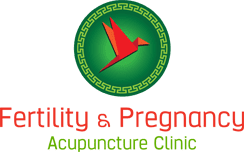
Oncology acupuncture
Oncology acupuncture is aimed at supporting people whilst they are undergoing treatment for cancer or after they have completed their treatments. Many people are diagnosed with cancer at some stage in their lives and will undergo a variety or treatments for it. These might include chemotherapy, immunotherapy, radiation therapy, surgery, or hormone therapy. These treatments are often excellent at their job but can be very difficult to endure both physically and emotionally whilst undergoing them. They will also often adversely impact cancer survivors quality of life due to ongoing side effects or complications from the treatments they had.
Common side effects
Common side effects whilst undergoing cancer treatments include
- chemotherapy-induced nausea and vomiting
- chemotherapy-induced peripheral neuropathy
- fatigue (during and post treatment)
- cancer pain
- hot flushes
- depression and anxiety
- insomnia or difficulty sleeping
- radiation or chemotherapy induced xerostomia (dry mouth)
- joint pain whilst using aromatase inhibitors (hormone blockers)
Many people undergoing treatment for cancer will report the treatment is often worse than the disease itself. It is important the cancer treatment plan recommended by your medical team is followed but there are measures which can help alleviate some of the side effects. One of these is acupuncture which can be utilised whilst having cancer treatment. The goal of acupuncture treatments are to minimise side effects and to improve quality of life.
How can acupuncture assist with the side effects of cancer treatment?
• Chemotherapy-induced nausea and vomiting
Research (1, 2) indicates acupuncture and acupressure may help with the nausea and vomiting often associated with chemotherapy. It is estimated 60-80% of people undergoing chemotherapy will experience nausea and vomiting. It is a debilitating and distressing side effect which adversely impacts people’s quality of life.
Antiemetic medication, such as maxalon and ondansertron, can effective for some people but often can not completely control it. These medications also come with their own side effects so many people attempt to limit their uses where possible and look for other non-pharmacological measures to also help.
• Fatigue during or after cancer treatment
Fatigue is another common side effect experienced by people having active cancer treatments and after finished treatment. Many cancer survivors reporting debilitating fatigue for months or years after their active treatment has finished. It’s thought some of this may be due to the body having to eliminate the cancer treatment which has been toxic to the body and then rebuild the cells which have been destroyed or harmed during the cancer treatment.
Many studies have shown acupuncture can improve cancer-related fatigue. A 2017 meta-analysis (3), which reviewed 10 RCT’s with included 1327 patients, concluded acupuncture had a marked effect on fatigue in cancer patients. It was useful both whilst people were receiving cancer treatment and afterwards. It noted breast cancer patients in particular benefitted from acupuncture sessions.
• Peripheral neuropathy
Peripheral neuropathy is a common side effect of certain types chemotherapy , such as taxanes, which which damage the dorsal root ganglia. It most commonly presents as numbness, tingling and burning pain in the hands and feet. For some people it may be a mild sensation in their fingertips and toes and for others it will be so severe it will interfere with their activities of daily living. It can make walking very difficult and painful and make simple tasks, such as doing up a button, impossible. It is both distressing and debilitating for people and will often lead to a dose reduction or discontinuation of the chemotherapy agent. It may resolve when treatment ends or for many can remain a lifelong issue.
Currently the treatment is reducing or discontinuing the chemotherapy, certain medications may be prescribed, such as antidepressants, opioids or gabapentin, which some people find useful. Some of the non-pharmaceutical measures are acupuncture and massage. Research (4) has shown acupuncture may be useful in helping with the symptoms of peripheral neuropathy caused by chemotherapy agents.
• Cancer-related pain
Cancer-related pain may be due to the cancer itself or as a consequence of the treatment of it. Cancer-related pain can be related to a malignancy, or be a result of chemotherapy, radiation therapy, surgery and hormone therapy. Research has found acupuncture can reduce pain levels on its own and reduce the amount of medications required.
A 2017 systematic review (5) of 29 trials concluded effective in relieving cancer-related pain, and was particular use for malignancy and surgery-related pain.
Research links
1. McKeon C, Smith CA, Hardy J, Chang E. Acupuncture and acupressure for chemotherapy-induced nausea and vomiting: a systematic review. Australian Journal of Acupuncture and Chinese Medicine. 2013 Jan;8(1):2-7.
2. Yan Y, López-Alcalde J, Zhang L, Siebenhüner AR, Witt CM, Barth J. Acupuncture for the prevention of chemotherapy-induced nausea and vomiting in cancer patients: A systematic review and meta-analysis. Cancer Med. 2023; 12: 12504–12517. doi:10.1002/cam4.5962
3. Yuxia Jin, Yunxia Wang, Jiayuan Zhang, Xiao Xiao, Qi Zhang, “Efficacy and Safety of Acupuncture against Chemotherapy-Induced Peripheral Neuropathy: A Systematic Review and Meta-Analysis”, Evidence-Based Complementary and Alternative Medicine, vol. 2020, Article ID 8875433, 10 pages, 2020. https://doi.org/10.1155/2020/8875433https://www.hindawi.com/journals/ecam/2020/8875433/
4. Zhang Y, Lin L, Li H, Hu Y, Tian L. Effects of acupuncture on cancer-related fatigue: a meta-analysis. Support Care Cancer. 2018 Feb;26(2):415-425. doi: 10.1007/s00520-017-3955-6. Epub 2017 Nov 11. PMID: 29128952.https://pubmed.ncbi.nlm.nih.gov/29128952/
5. Chiu HY, Hsieh YJ, Tsai PS. Systematic review and meta-analysis of acupuncture to reduce cancer-related pain. Eur J Cancer Care (Engl). 2017 Mar;26(2). doi: 10.1111/ecc.12457. Epub 2016 Feb 7. PMID: 26853524.https://pubmed.ncbi.nlm.nih.gov/26853524/
